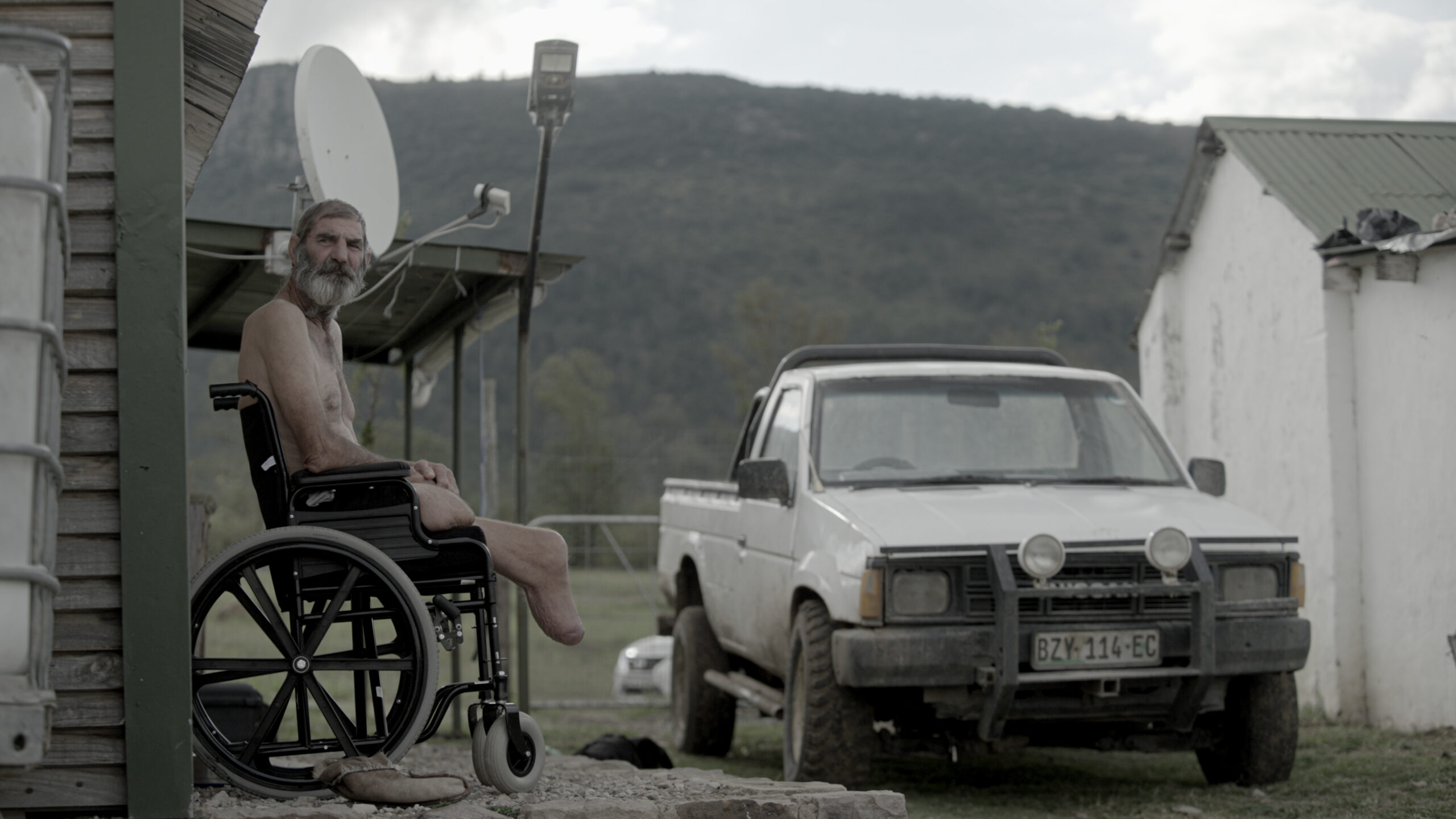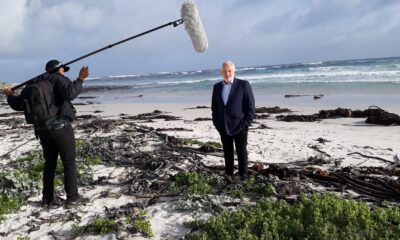
Lifestyle

Up close with an apartheid killer
Isa Jacobson has spent more than four years creating The Apartheid Killer, a documentary that will be aired on the BBC World Service and as a series of podcasts. It explores a series of shootings in 1980s South Africa in which the late private security guard Louis van Schoor killed at least 39 people. The documentary is based on interviews Jacobson conducted with Van Schoor and the relatives of his victims. Van Schoor was arrested in 1991, but with many of his killings signed off by police as “justifiable homicides”, he served only 12 years. The SA Jewish Report spoke to Jacobson, a journalist and filmmaker.
What drew you to documentary filmmaking?
Documentaries tell real people’s stories and some of those stories are truly remarkable. I also make films for nongovernment organisations and those real stories help to communicate people’s lived experiences to a wider world, especially to those who may never get to see how those people live. It’s important always to be respectful of those experiences.
What have you done to date as a filmmaker?
I made a documentary that focused mostly on Van Schoor’s daughter, titled Daddy’s Girl, before I started making films for non-profit organisations. These films have taken me to multiple African countries, often shooting alone in urban and rural areas. Four years ago, Charlie Northcott, my BBC co-director, contacted me to see if I would be able to get Van Schoor to talk to me again. That led to The Apartheid Killer.
What drew you to this particular investigative documentary?
I was asked by the BBC to find the survivors and the families of Van Schoor’s victims. It was this investigation that really drew me in and propelled me forward. Finding Marlene and Raymond Soenies, and helping them to bury their brother and father, Edward, gave me a focus beyond the investigation.
Why did you believe it was necessary to do this now, so many years after the end of apartheid?
Many stories about the apartheid era. haven’t been told. Many loved ones lie in unmarked graves, and those families haven’t had the chance to heal. We need to reveal the truth to stop the intergenerational trauma in this country and help the country to heal.
This will be shown on BBC Africa Eye and as a season of the World of Secrets podcast. How did the former come about, and what exactly is the latter?
The BBC Africa Eye documentary is 75-minutes long, and the World of Secrets podcast, season 3, is a six-part podcast. Both are titled The Apartheid Killer.
How can South Africans access it?
The link to the documentaryon YouTube is: https://youtu.be/QPB42_uLLh0?si=gM_JVPabv8a-EQbM
The podcast can be found on most podcast platforms. Here’s the link to Apple podcasts: https://podcasts.apple.com/za/podcast/world-of-secrets/id1704480561?i=1000662742692
How did you get access to Van Schoor, and why was he willing to speak so openly to you?
I had met Van Schoor when he was still in prison more than 20 years ago. He was keen to tell his side of the story, and I think that remained the case many years later, with the focus more on him. Probably knowing me helped, and being a white South African certainly played a role in making him feel relaxed. It may even have helped that I’m a woman.
Why were the families keen to talk, and what struck you about the fact that they were keen?
Marlene and Raymond were left with so many unanswered questions, and were seeking the truth and some closure. I was grateful to them that they were so willing to open their hearts and homes to me and Charlie, and speak about such painful experiences.
Why weren’t Van Schoor’s victims on the Truth and Reconciliation Commission list, and how did he get away with it?
Van Schoor’s crimes were considered to have been committed while he was a private security guard. The victims weren’t on the TRC list for that reason. The anti-apartheid activist who worked to stop him was Sharlene Crage at the Black Sash. He was killing with impunity, but the white community kept encouraging him by hiring him to guard their businesses. And the police kept rubber stamping his killings.
How do the victims’ loved ones feel about the ‘apartheid killer’ now?
It’s important to watch the film and listen to the podcast to get the answer to that. But it won’t speak for every victims’ loved one.
Do you and those you have interviewed believe that apartheid – as in racial hatred – has ended in South Africa? What are your thoughts on this?
There was no true justice served after the TRC, and we still need to look long and hard at the sins of the past in order to move on. I don’t believe that apartheid-era killers and torturers should have been allowed to walk free. And if white people are seen to be given free passes, it’s deeply problematic.
Who do you hope will watch and listen to this and why?
I hope it will open up a discussion in the country about genuine restorative justice and a route to reparation for Van Schoor’s victims.
What do you hope your audience will take home from this?
That no one should be allowed to say that they were just following orders and get away with committing heinous crimes. That we need to reveal the truth before those that hold the truth die. And I hope Jewish audiences will feel the compulsion to stand up for justice in today’s world.










